|
Books Should Be Free Loyal Books Free Public Domain Audiobooks & eBook Downloads |
|
|
Books Should Be Free Loyal Books Free Public Domain Audiobooks & eBook Downloads |
|
Philosophy Books |
|---|
|
Book type:
Sort by:
View by:
|
By: Ralph Waldo Emerson (1803-1882) | |
|---|---|
 Representative Men
Representative Men
A series of biographical lectures originally published in 1850. Each chapter is a philosophical treatment of the life of an intellectual. The six representatives are Plato, Swedenborg, Shakespeare, Montaigne, Napolean and Goethe. (Introduction by S. Kovalchik) | |
By: Sigmund Freud | |
|---|---|
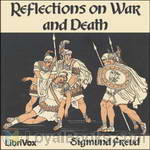 Reflections on War and Death
Reflections on War and Death
Anyone, as Freud tells us in Reflections on War and Death, forced to react against his own impulses may be described as a hypocrite, whether he is conscious of it or not. One might even venture to assert—it is still Freud’s argument—that our contemporary civilisation favours this sort of hypocrisy and that there are more civilised hypocrites than truly cultured persons, and it is even a question whether a certain amount of hypocrisy is not indispensable to maintain civilisation. When this... | |
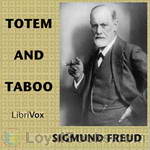 Totem and Taboo
Totem and Taboo
Totem and Taboo: Resemblances Between the Mental Lives of Savages and Neurotics is a book by Sigmund Freud, published in German in 1913. It is a collection of four essays first published in the journal Imago (1912–13), employing the application of psychoanalysis to the fields of archaeology, anthropology, and the study of religion. The four essays are entitled: The Horror of Incest; Taboo and Emotional Ambivalence; Animism, Magic and the Omnipotence of Thoughts; and The Return of Totemism in Childhood. | |
By: Ayn Rand (1905-1982) | |
|---|---|
 Anthem
Anthem
The title 'Anthem' is derived as an anthem to sense of self and self-governing thoughts. Anthem is a story of Equality 7-2521 who is a young man living in some unspecified future time and place. In this future era freedom and individual rights have been eradicated. The starring character of the novel is an inquisitive street cleaner. He lives in a society where people have lost their knowledge of individualism, to the extreme that people do not know words like 'I' or 'mine'. All the people live and work for their livelihood in collective groups, along with the people with power, namely the 'Councils'... | |
By: Joel Chandler Harris (1848-1908) | |
|---|---|
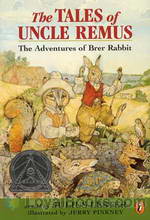 Uncle Remus
Uncle Remus
Bearing a striking resemblance to Aesop of Aesop's Fables fame, American author Joel Chandler Harris' Uncle Remus is also a former slave who loves to tell simple and pithy stories. Uncle Remus or to give it its original title, Uncle Remus: His Songs and His Sayings was published in late 1880 and received instant acclaim. The book was reviewed in hundreds of journals and newspapers across the country, leading to its immense success, both critical and financial. “Remus” was originally a fictional character in a newspaper column... | |
By: John Stuart Mill (1806-1873) | |
|---|---|
 On Liberty
On Liberty
Published in 1859, On Liberty is a libertarian philosophical work by English philosopher John Stuart Mill that endorses his view on the importance of individuality for the constant progression and improvement of society. The work also supports economic and moral freedom, and openly criticizes the influence of social authority that in one way or another imposes a predefined set of acceptable attitudes and opinions. Highlighting issues including the incongruity between authority and liberty, the oppressive... | |
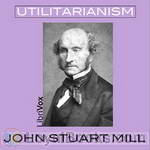 Utilitarianism
Utilitarianism
John Stuart Mill’s book Utilitarianism is one of the most influential and widely-read philosophical defenses of utilitarianism in ethics. The essay first appeared as a series of three articles published in Fraser’s Magazine in 1861; the articles were collected and reprinted as a single book in 1863. It went through four editions during Mill’s lifetime with minor additions and revisions. Although Mill includes discussions of utilitarian ethical principles in other works such as On Liberty and The Subjection of Women, Utilitarianism contains Mill’s only major discussion of the fundamental grounds for utilitarian ethical theory. | |
 The Subjection of Women
The Subjection of Women
The Subjection of Women is the title of an essay written by John Stuart Mill in 1869, possibly jointly with his wife Harriet Taylor Mill, stating an argument in favor of equality between the sexes. It offers both detailed argumentation and passionate eloquence in opposition to the social and legal inequalities commonly imposed upon women by a patriarchal culture. Just as in “On Liberty,” Mill defends the emancipation of women on utilitarian grounds, convinced that the moral and intellectual advancement of women would result in greater happiness for everybody. | |
 Considerations on Representative Government
Considerations on Representative Government
Mill's volume was published in 1861 as an argument favoring this form of governance. Mill covers what forms of government work best, including when representative government is applicable and when not. He details appropriate functions of representative bodies and warns of problems to avoid. He distinguishes between true and false democracy. Other areas covered include how voting is carried out, the role of a second chamber in Parliament, and how an executive branch might function. | |
 Auguste Comte and Positivism
Auguste Comte and Positivism
Part 1 lays out the framework for Positivism as originated in France by Auguste Comte in his Cours de Philosophie Positive. Mill examines the tenets of Comte's movement and alerts us to defects. Part 2 concerns all Comte's writings except the Cours de Philosophie Positive. During Comte's later years he gave up reading newspapers and periodicals to keep his mind pure for higher study. He also became enamored of a certain woman who changed his view of life. Comte turned his philosophy into a religion, with morality the supreme guide. Mill finds that Comte learned to despise science and the intellect, instead substituting his frantic need for the regulation of change. | |
By: Adam Smith (1723-1790) | |
|---|---|
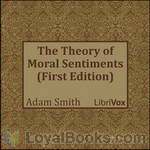 The Theory of Moral Sentiments (First Edition)
The Theory of Moral Sentiments (First Edition)
“How selfish soever man may be supposed, there are evidently some principles in his nature, which interest him in the fortunes of others, and render their happiness necessary to him, though he derives nothing from it, except the pleasure of seeing it.” (from The Theory of Moral Sentiments) Adam Smith considered his first major book, The Theory of Moral Sentiments, his most important work. Indeed, the tome was a wild success upon its publication, selling out immediately. It has not lost popularity since... | |
By: Robert W. Service (1874-1958) | |
|---|---|
 Selections from Ballads of a Cheechako
Selections from Ballads of a Cheechako
These twelve poems are from Ballads of a Cheechako which was Robert W. Service’s third book of Yukon poems, published in 1909. The word Cheechako, from Chinook Jargon, originated in the United States (Alaska) and Canada (Yukon) and was imported into local English during the Yukon gold rush that began in 1896. Cheechako, is a non derogatory word meaning “newcomer” or “tenderfoot.” The derivation looks something like this: chee new cha come ko home. | |
By: Saint Thomas Aquinas (1225-1274) | |
|---|---|
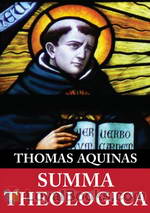 Summa Theologica, Pars Prima
Summa Theologica, Pars Prima
More than nine hundred years after it was first written, this unfinished work of a scholar saint still has the power to move our minds and hearts and set us thinking on the really important questions of life. Summa Theologica or simply the Summa as it is known, was written some time between 1265-74. It is a work that has had a profound and enduring influence on Western thought and literature. Designed to provide answers to Catholic theologians about the teachings of the Church, Thomas Aquinas' book instead goes far beyond its stated purpose... | |
By: Bertrand Russell | |
|---|---|
 Proposed Roads to Freedom
Proposed Roads to Freedom
Bertrand Russell, 3rd Earl Russell (1872 – 1970) was a British philosopher, logician, mathematician, political activist and Nobel laureate. He led the British “revolt against idealism” in the early 1900s and is considered one of the founders of analytic philosophy along with his predecessor Gottlob Frege and his protégé Ludwig Wittgenstein. In this book, written in 1918, he offers his assessment of three competing streams in the thought of the political left: Marxian socialism, anarchism and syndicalism. | |
By: David Hume (1711-1776) | |
|---|---|
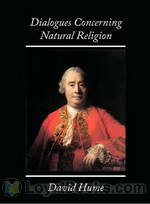 Dialogues Concerning Natural Religion
Dialogues Concerning Natural Religion
In Dialogues Concerning Natural Religion, philosopher David Hume examines whether belief in God can be rational. The work takes the form of a debate between three characters: Cleanthes, who argues that the existence and nature of God can be empirically verified; Demea, who argues that God is completely beyond human knowledge; and Philo, a philosophical skeptic widely thought to represent Hume’s own beliefs. Much of the debate centers around Cleanthes’ presentation of the analogical argument from design... | |
 A Treatise Of Human Nature
A Treatise Of Human Nature
This book, published in two volumes called “books” by the author, is a treatment of everything from the origin of our ideas to how they are to be divided. It includes important statements of Scepticism and Hume’s experimental method. Part 1 deals with the nature of ideas. Part 2 deals with the ideas of space and time. Part 3 deals with knowledge and probability. Part 4 deals with skeptical and other systems of philosophy, including a discussion of the soul and personal identity.This is a recording of Volume I (or Book 1). Volume II (which contains Books 2 and 3) is in production at the moment. | |
 Enquiry Concerning the Principles of Morals
Enquiry Concerning the Principles of Morals
| |
By: Francis Bacon (1561-1636) | |
|---|---|
 The New Organon Or True Directions Concerning The Interpretation of Nature
The New Organon Or True Directions Concerning The Interpretation of Nature
The Novum Organum is a philosophical work by Francis Bacon published in 1620. The title translates as “new instrument”. This is a reference to Aristotle’s work Organon, which was his treatise on logic and syllogism. In Novum Organum, Bacon details a new system of logic he believes to be superior to the old ways of syllogism. For Bacon, finding the essence of a thing was a simple process of reduction, and the use of inductive reasoning . . . This work was critical in the historical development of the scientific method. | |
By: Rabindranath Tagore (1861-1941) | |
|---|---|
 Creative Unity
Creative Unity
Gurudev Rabindranath Tagore talks of the many things he feels is necessary for creativity through joy of unity, he covers many topics like the creative ideal, makes comparisons of creativity between the east and the west, the spirit of freedom and about his idea of an University. | |
By: Thomas Hobbes (1588-1679) | |
|---|---|
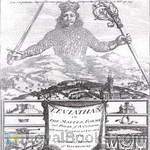 Leviathan, or The Matter, Forme and Power of a Common Wealth Ecclesiasticall and Civil
Leviathan, or The Matter, Forme and Power of a Common Wealth Ecclesiasticall and Civil
Books 1 and 2. Leviathan, or The Matter, Forme and Power of a Common Wealth Ecclesiasticall and Civil is a book written in 1651 by Thomas Hobbes. The book concerns the structure of society (as represented figuratively by the frontispiece, showing the state giant made up of individuals). In the book, Hobbes argues for a social contract and rule by a sovereign. Influenced by the English Civil War, Hobbes wrote that chaos or civil war – situations identified with a state of nature and the famous motto bellum omnium contra omnes (”the war of all against all”) – could only be averted by strong central government... | |
By: Anton Chekhov (1860-1904) | |
|---|---|
 The Cherry Orchard
The Cherry Orchard
The Cherry Orchard is Russian playwright Anton Chekhov's last play. It premiered at the Moscow Art Theatre 17 January 1904 in a production directed by Constantin Stanislavski. Chekhov intended this play as a comedy and it does contain some elements of farce; however, Stanislavski insisted on directing the play as a tragedy. Since this initial production, directors have had to contend with the dual nature of this play. The play concerns an aristocratic Russian woman and her family as they return to the family's estate (which includes a large and well-known cherry orchard) just before it is auctioned to pay the mortgage... | |
By: Mary Wollstonecraft (1759-1797) | |
|---|---|
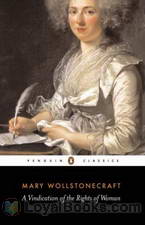 A Vindication of the Rights of Woman
A Vindication of the Rights of Woman
Regarded as the one of the earliest examples of feminist philosophy, A Vindication of the Rights of Woman is written as a direct response to Charles Maurice de Talleyrand-Périgord, a French politician who delivered a report to the French National Assembly suggesting that women should only receive domestic education and additionally encourages women to stay clear of political affairs. In her treatise, Wollstonecraft avidly criticizes this inadequate perception of women as an inferior sex and attacks social inequality, while also arguing for women’s rights in the hope of redefining their position both in society and in marriage... | |
By: Gelett Burgess (1866-1951) | |
|---|---|
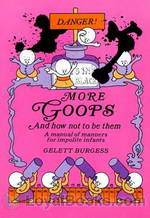 More Goops and How Not to Be Them
More Goops and How Not to Be Them
Deep in the heart of every parent is the wish, the desire, to have other adults tell us, in an unsolicited way, just how very polite one’s child is! This perhaps was even more the case in 1903, when Gelett Burgess produced his second book on the Goops. With entertaining cartoons – cariacatures of misbehaving children – he described many different breaches of tact and good manners. Burgess wrote several books of poetry on the Goops, each poem describing some significant way in which an unthoughtful or unkind child could offend polite society and often offering the hope that the listener would never behave that way... | |
By: William James (1842-1910) | |
|---|---|
 Essays in Radical Empiricism
Essays in Radical Empiricism
William James (1842 – 1910) was a pioneering American psychologist and philosopher. He wrote influential books on the young science of psychology, educational psychology, psychology of religious experience and mysticism, and the philosophies of pragmatism and Radical Empiricism. Essays in Radical Empiricism is a collection edited and published posthumously by his colleague and biographer Ralph Barton Perry in 1912. It was assembled from a collection of reprinted journal articles published from 1904–1905 which James had deposited in August 1906 at Harvard University, for supplemental use by his students. | |
 Varieties of Religious Experience
Varieties of Religious Experience
The Varieties of Religious Experience: A Study in Human Nature is a book by the Harvard psychologist and philosopher William James that comprises his edited Gifford Lectures on "Natural Theology" delivered at the University of Edinburgh in Scotland between 1901 and 1902. These lectures concerned the nature of religion and the neglect of science, in James' view, in the academic study of religion. Soon after its publication, the book found its way into the canon of psychology and philosophy, and has remained in print for over a century. | |
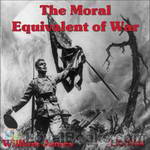 The Moral Equivalent of War
The Moral Equivalent of War
The Moral Equivalent of War, the last public utterance of William James, is significant as expressing the opinions of a practical psychologist on a question of growing popular interest. For the past fifteen years the movement for promoting international peace has been enlisting the support of organizations and individuals the world over. That this is a question on which much may be said for the opposition, James, though a pacificist, admits with his usual fair-mindedness, pointing out that militarism... | |
 Pragmatism
Pragmatism
'Pragmatism' contains a series of public lectures held by William James in Boston 1906–7. James provides a popularizing outline of his view of philosophical pragmatism while making highly rhetorical and entertaining lashes towards rationalism and other competing schools of thought. James is especially concerned with the pragmatic view of truth. True beliefs should be defined as, according to James, beliefs that can successfully assist people in their everday life. This is claimed to not be relativism... | |
By: Vladimir Ilyich Lenin (1870-1924) | |
|---|---|
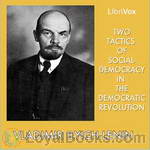 Two Tactics of Social-Democracy in the Democratic Revolution
Two Tactics of Social-Democracy in the Democratic Revolution
In the heat of the failed 1905 revolution in Russia, Lenin here contrasts the precision of the Bolshevik political program and tactics with various inconsistent and servile factions within the Russian Social-Democratic Labor Party. | |
By: M. M. Mangasarian (1859-1943) | |
|---|---|
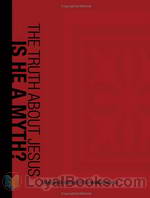 The Truth About Jesus. Is He a Myth?
The Truth About Jesus. Is He a Myth?
The following work offers in book form the series of studies on the question of the historicity of Jesus, presented from time to time before the Independent Religious Society in Orchestra Hall, Chicago, 1909. No effort has been made to change the manner of the spoken, into the more regular form of the written, word. | |
By: Evelyn Underhill | |
|---|---|
 The Life of the Spirit and the Life of Today
The Life of the Spirit and the Life of Today
Underhill emphasizes the practical, here-and-now nature of spiritual life. She argues that spirituality is a genuine and abiding human fact, and that any complete description of human life must find room for the spiritual factor, and for the religious life in which it finds expression. | |
By: Okakura Kakuzo (1863-1913) | |
|---|---|
 The Book of Tea
The Book of Tea
The Book of Tea was written by Okakura Kakuzo in the early 20th century. It was first published in 1906, and has since been republished many times. – In the book, Kakuzo introduces the term Teaism and how Tea has affected nearly every aspect of Japanese culture, thought, and life. The book is noted to be accessibile to Western audiences because though Kakuzo was born and raised Japanese, he was trained from a young age to speak English; and would speak it all his life, becoming proficient at communicating his thoughts in the Western Mind... | |
By: John Ruskin (1819-1900) | |
|---|---|
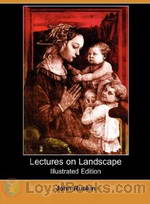 Lectures on Landscape
Lectures on Landscape
A series of lectures on landscape painting delivered at Oxford in 1871, by artist, critic, and social commentator, John Ruskin. | |